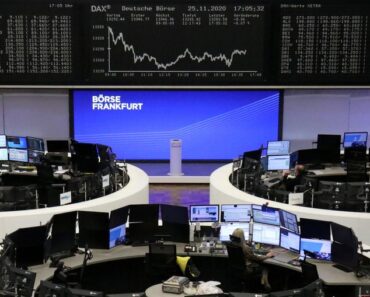This post was originally published on this site

(Reuters) – Campbell Soup (NYSE:CPB) forecast annual profit largely above Wall Street estimates on Thursday, encouraged by easing costs and steady demand for its snacks even as inflation-weary consumers trade down to cheaper private-label soups and packaged meals.
Packaged food majors have passed on higher input costs to customers through price increases over the past year, and their margins are now also benefiting from easing expenses tied to supply chain, packaging and commodities.
Campbell’s snack brands – including Goldfish crackers, Cape Cod potato chips and Pepperidge Farm cookies – saw strong demand, driving a 9% rise in fourth-quarter organic sales in the snack segment.
Shares of the company, which recently struck a $2.7 billion deal to buy Rao’s sauce owner Sovos Brands, rose about 3%.
Demand for it soups, however, took a hit from consumers switching to cheaper private-label products – with volumes at its meals and beverages division sliding 5% in the quarter ended July 30.
Campbell expects the decline in volumes to continue in the first half of fiscal 2024, but noted it would see positive trends in the second half, which would help it offset an impact from fading pricing benefits.
“We’re already seeing some early signs of improvement” in demand for categories like soup, CEO Mark Clouse said, adding that a growing shift to more “value-driven, stretchable meals,” were helping drive sales of pasta sauce, broth and condensed cooking soup.
Campbell projected full-year adjusted earnings per share between $3.09 and $3.15, higher than analysts’ estimate of $3.10 at mid-point, according to Refinitiv IBES data.
It also said it expects a 0.5% decrease to a 1.5% rise in net sales in fiscal 2024, compared with estimates of a 0.8% gain to $9.43 billion.
“If guidance proves accurate, then Campbell’s fundamentals this coming year will be better than feared,” J.P. Morgan analyst Ken Goldman said, adding many investors might have even preferred a slightly more conservative outlook.


